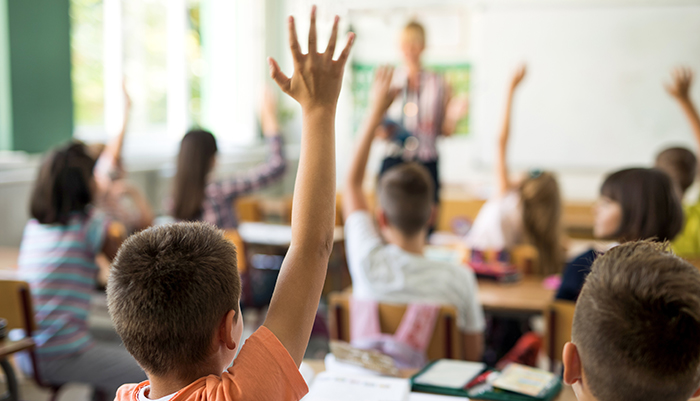Register now and start:
- Accessing PAR Training
- Shopping PAR products & tools
- Using online assessments with PARiConnect


This week's blog was contributed by Eric Culqui, MA, PPS, PAR's educational assessments advisor–regional accounts. Eric is a licensed school psychologist with more than 14 years of experience and a NASP-certified crisis response trainer and first responder.
Prior to the COVID-19 pandemic, educators were struggling with increases in disruptive behaviors. In a 2019 study of nearly 1,900 elementary school teachers, administrators, and staff, behavioral disruptions including tantrums, bullying, and defiance were noted to have increased in kindergarten through fifth-grade classrooms.
Beyond impeding instructional time, these behaviors had a negative impact on the mental health of students. Trauma in the family, untreated mental illness, overexposure to electronic devices, and inadequate playtime, in addition to changes in parenting styles, were cited as suspected factors in these behaviors. Upon the return to school after quarantine, these behaviors were noted to have increased and were observed in much younger students. This was further exacerbated by increased mental health needs of students. Traditional methods and resources were not seen to be sufficient. Given the increased need for mental health intervention and promotion, strengths-based assessment can be used to evaluate strengths and competencies as part of a comprehensive psychoeducational evaluation and to plan for an individualized behavioral, educational, and/or treatment plan.
The Social Emotional Assets and Resilience Scales™ (SEARS) is a system for assessing, from multiple informants, the social emotional competencies and assets of children and adolescents ages 5 to 18 years across multiple settings. Social emotional assets and resiliencies can be broadly defined as a set of adaptive characteristics that are important for success at school, with peers, and in the outside world. The SEARS offers assessment professionals the opportunity to measure common constructs of self-regulation, responsibility, social competence, and empathy.
The SEARS utilizes a strengths-based approach to guide interventions that help identify a child's internal assets as opposed to focusing on their deficits. This allows for a diversity of intervention strategies across a multi-tiered system of supports as opposed to making a referral directly to special education assessment. Addressing the whole child by helping them identify and leverage their strengths is critical given myriad stressors impressed on our students as a result of COVID-19.
Read more about recent research on SEARS that supports its clinical use or visit the PAR Training Portal for an on-demand training course.